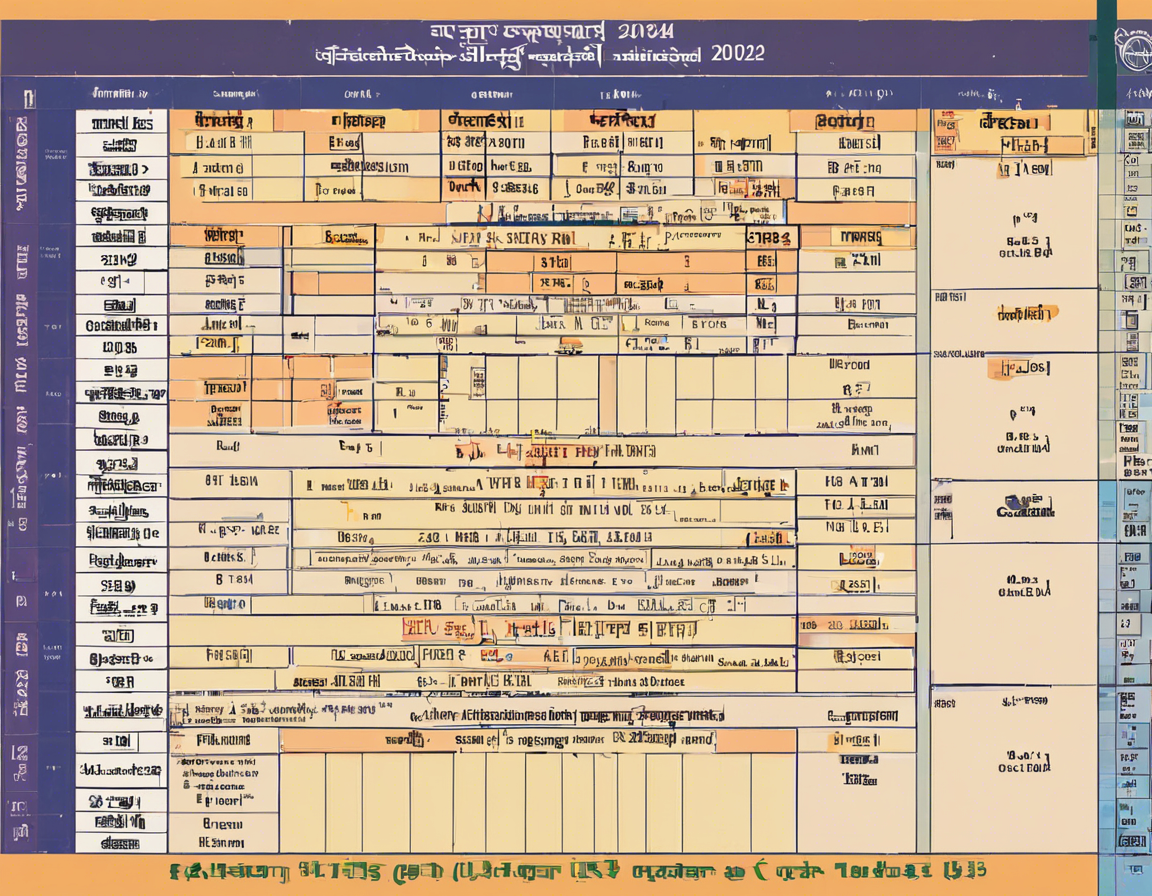Are you struggling to stay organized and manage your time effectively as a Class 8 student? Creating a well-structured timetable can be a game-changer in ensuring you stay on top of your academic responsibilities while also making time for other activities and hobbies. In this article, we will guide you on how to organize your week effectively as a Class 8 student with a timetable tailored to your needs.
Importance of a Class 8 Time Table
Having a well-planned timetable is crucial for Class 8 students as they transition into a more rigorous academic environment. Here are some reasons why a timetable is essential:
- Time management: A timetable helps you prioritize tasks and allocate time for each subject, homework, revision, and extracurricular activities.
- Reduced stress: By planning ahead, you can avoid last-minute cramming and the stress that comes with it.
- Improved productivity: A structured timetable can help you focus better, leading to increased productivity and better academic performance.
- Work-life balance: By allotting time for studies, recreation, and relaxation, you can achieve a healthy balance in your daily routine.
How to Create an Effective Class 8 Time Table
Follow these steps to create a customized timetable that suits your study habits and schedule:
1. Identify Your Priorities
- List down all your subjects and any extra activities you participate in.
- Identify which subjects require more study time based on your understanding and proficiency.
2. Allocate Time Slots
- Divide your day into blocks of time for study sessions, meals, recreation, and rest.
- Dedicate specific time slots for each subject, homework, revision, and self-study.
3. Be Realistic
- Ensure your timetable is realistic and achievable. Avoid overloading yourself with too many tasks in a short timeframe.
- Factor in breaks between study sessions to avoid burnout.
4. Stick to the Timetable
- Consistency is key to the effectiveness of your timetable. Try to follow it diligently and make adjustments as needed.
- Track your progress and make timely revisions to optimize your schedule.
Sample Class 8 Time Table
Here’s a sample timetable for a Class 8 student to give you an idea of how to structure your week effectively:
- Monday to Friday
- 6:00 AM – 7:00 AM: Morning routine
- 7:00 AM – 8:00 AM: Breakfast and prep
- 8:00 AM – 12:00 PM: School
- 12:00 PM – 1:00 PM: Lunch
- 1:00 PM – 3:00 PM: Homework / Study (Science)
- 3:00 PM – 4:00 PM: Break
- 4:00 PM – 6:00 PM: Study (Math)
- 6:00 PM – 7:00 PM: Dinner
- 7:00 PM – 8:30 PM: Study (English)
- 8:30 PM – 9:30 PM: Revision
-
9:30 PM onwards: Wind down / leisure / bedtime
-
Weekends
- Allocate time for revising all subjects, completing pending homework, and engaging in extracurricular activities or hobbies.
Frequently Asked Questions (FAQs)
1. How many hours should a Class 8 student study daily?
Class 8 students are recommended to study for about 2-3 hours daily, focusing on different subjects each day.
2. How can I balance schoolwork and extracurricular activities effectively?
Allocate specific time slots in your timetable for both schoolwork and extracurricular activities, ensuring a balance between academics and hobbies.
3. Is it necessary to include breaks in my study timetable?
Yes, breaks are crucial for recharging and maintaining efficiency. Include short breaks between study sessions to avoid mental fatigue.
4. Should I study the same subject for an extended period or switch between subjects?
It’s beneficial to alternate between subjects to keep your mind engaged and prevent monotony. This approach can also aid in better retention of information.
5. How can I adjust my timetable during exam periods?
During exams, prioritize revision and allocate more time for subjects you find challenging. Adjust your timetable to include more revision sessions and practice tests.
In conclusion, a well-structured Class 8 timetable can significantly boost your productivity and academic performance. By following the above guidelines and customizing your timetable to suit your needs, you can effectively manage your time, reduce stress, and achieve a healthy work-life balance. Remember, consistency and flexibility are key to making your timetable successful.



